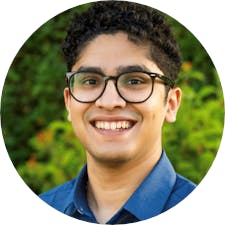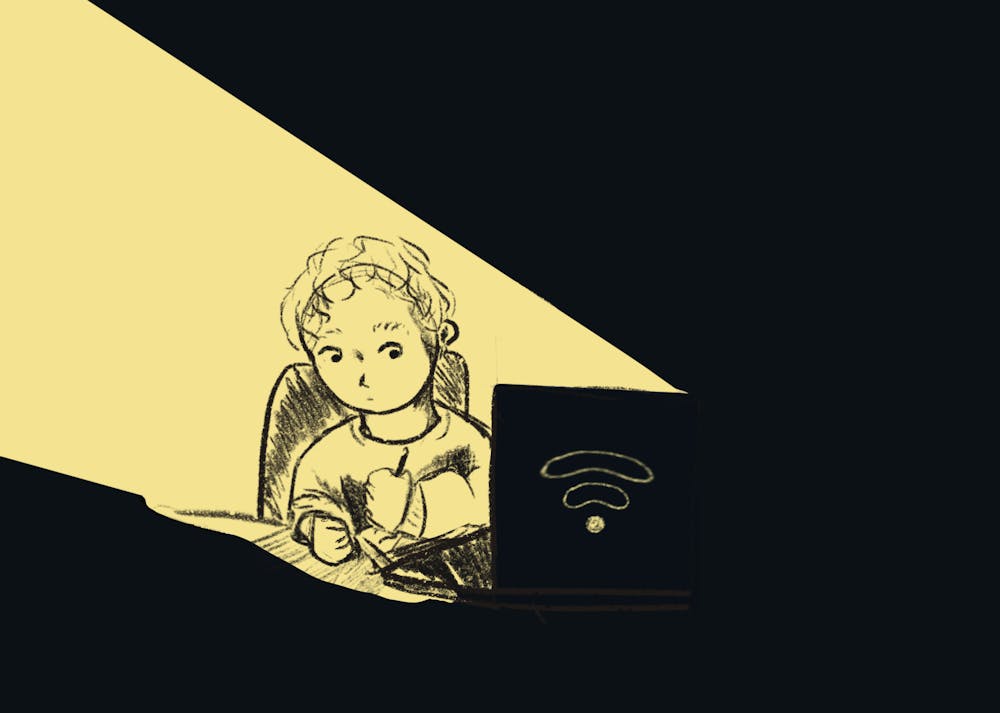Four ASU students have returned to their hometown of Maryvale, Arizona, to help provide free internet service to students attending Isaac Elementary School District with hopes of expanding.
Since the start of the COVID-19 pandemic, a multitude of schools have switched to an online curriculum.
The Isaac Elementary School District was no different, said Erik Cole, director of the Design Studio at the Watts College of Public Service and Community Solutions. But lack of internet service made it difficult for students to attend classes.
With the help of the Design Studio’s Maryvale One Square Mile Initiative, ASU students with intimate experience of what it's like to live in Maryvale returned to change that.
Manuel Elizalde, a sophomore studying public service and public policy, said, "(The Design Studio) thought, 'Who better to help canvas the community than those from the community to let people know that these services were being provided and completely free for them.'”
Elizalde said because he and the other students were from Maryvale, the Design Studio incorporated their knowledge and ideas to find the best ways to canvas neighborhoods. This allowed the residents to feel more comfortable and open to having the internet service.
The initiative finds innovative, community-driven solutions for sustainable changes in Maryvale, a community with "the second highest percentage of residents living below the poverty line, and lower test scores and education levels than much of Phoenix," according to the initiative's website.
“The superintendent (of the district) called and said that the families are struggling to get connected to remote school and asked if we could understand why,” Cole said.
Having previously worked with the district, the Design Studio team began as soon as possible. Through research, it found many of the residents had little to no internet service in their homes.
Oftentimes, students had to travel to the nearest McDonalds for Wi-Fi, but it wasn’t enough.
And while the district tried to solve the issue with local hotspots, it wasn’t as effective as the district hoped, and students continued to struggle to attend classes.
Cole said it was during the middle of the pandemic when the University Technology Office at ASU mentioned it was looking to test new technology for off-campus students to access online learning, but wanted to beta-test it in a community setting.
It was that technology the One Square Mile Initiative was set to incorporate into Maryvale homes.
Berto Perez, director of technology at Isaac School District No. 5, said internet access for students was something that needed to be “addressed immediately" since the beginning of the pandemic. And when the partnership with One Square Mile came to work on a project like this, the district was more than willing to be the test subject.
Beta-testing began with installation of broadband internet routers — and with it, the free internet service to attend class — into eight mobile homes of students at Moya Elementary, Cole said.
“We were willing to work with them to pilot test this,” Perez said. “We knew that it was some new stuff that people were willing to put together, but we were willing to put the time and effort to do it.”
According to Perez, the initiative allows students to be more connected with their classrooms and gives them the opportunity to dedicate time on the weekends and outside of class to do homework and other school-related activities online.
Explaining the project was easy because of the school district's prior relationship with its students' parents.
Once One Square Mile found the testing succeeded, it moved on in hopes of installing the internet service to the one square mile around Isaac Middle School. But the team found canvassing, a vital part of the project, a challenging task — until four ASU student workers from Maryvale came on board. Because of their background and experience, the students were able to provide a sense of familiarity and trust for the community.
Elizalde said it was important for the community to know the One Square Mile team was going to be there to help even after installation and provide any resources they would need.
“We make sure people know that we are there for the long run,” Elizalde said. “Rather than just going, collecting data and leaving again, we make sure they see us as a resource that is going to be there for a while.”
Wendy Ruiz, a sophomore studying business management and political science, said consistency was the key to finally getting residents on board with the project.
“As we started coming back more and more for our canvasing, they realized that we (are) actually trying to help,” she said.
Ruiz said having those conversations that connect with her community, find solutions and create an impact was the most rewarding part.
Progress has been made, but the students continue their work to support the initiative. The team continues to build the necessary Wi-Fi infrastructure with hopes of expanding to whole families in the future.
"It feels good to be able to be empowering and to work on a solution," Cole said. "...The internet is not the end all be all. We absolutely know that, but it's a big piece of equity these days."
Reach the reporters at ljchatha@asu.edu and follow @LukeJC2 on Twitter.
Like The State Press on Facebook and follow @statepress on Twitter.

Luke Chatham is a Community & Culture reporter and previous Business and Tech reporter. He also worked in the studio production crew for Cronkite News and is currently a freelance reporter and writer for Arcadia News.




